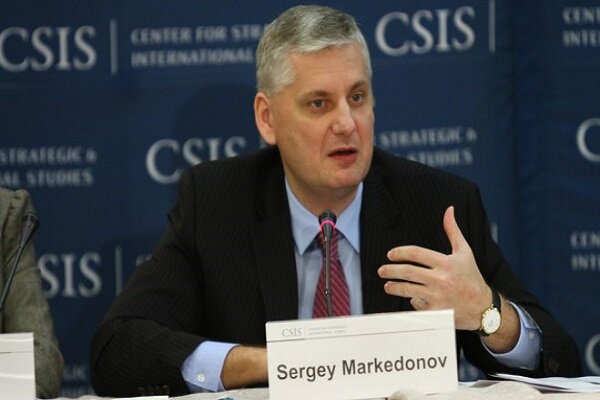ALWAGHT- Regarding the Iran-Russia Comprehensive Strategic Agreement, Sergey Markadenov emphasized that its importance extends beyond immediate concerns.
Sergey Markedonov, a Senior Fellow at the Institute for International Studies at MGIMO University, discussed the details and significance of the Iran-Russia Comprehensive Strategic Agreement. The long-term partnership, signed on January 17 by Iranian President Masoud Pezeshkian and his Russian counterpart, aims to strengthen bilateral relations in various sectors, including trade, energy, and defense. This agreement comes at a time when both nations face Western sanctions, signaling a deepening alliance between Tehran and Moscow.
Markedonov noted that while the agreement may not immediately counteract Western sanctions, it serves as a model for nations seeking to reduce their dependence on the West. He emphasized that the treaty’s importance extends beyond the current geopolitical agenda, as it fosters long-term collaboration and helps overcome historical tensions between Iran and Russia. He highlighted that the two nations, once adversaries in imperial times, are now working to build a new cooperative framework through this strategic agreement.
Addressing concerns raised by Western media, Markedonov dismissed claims of tensions in Iran-Russia relations due to the absence of a mutual defense commitment clause. He pointed out that security and defense cooperation remain key elements of the treaty, including joint military exercises and technical collaboration. While differences exist, such as Iran’s stance on Crimea and Russia’s ties with Israel, the agreement ultimately reflects shared strategic interests and a commitment to regional and global coordination.



























